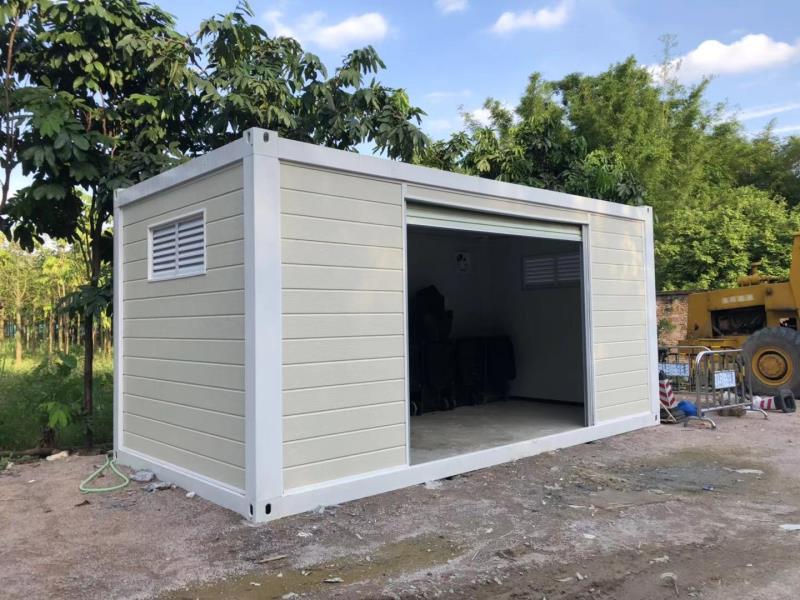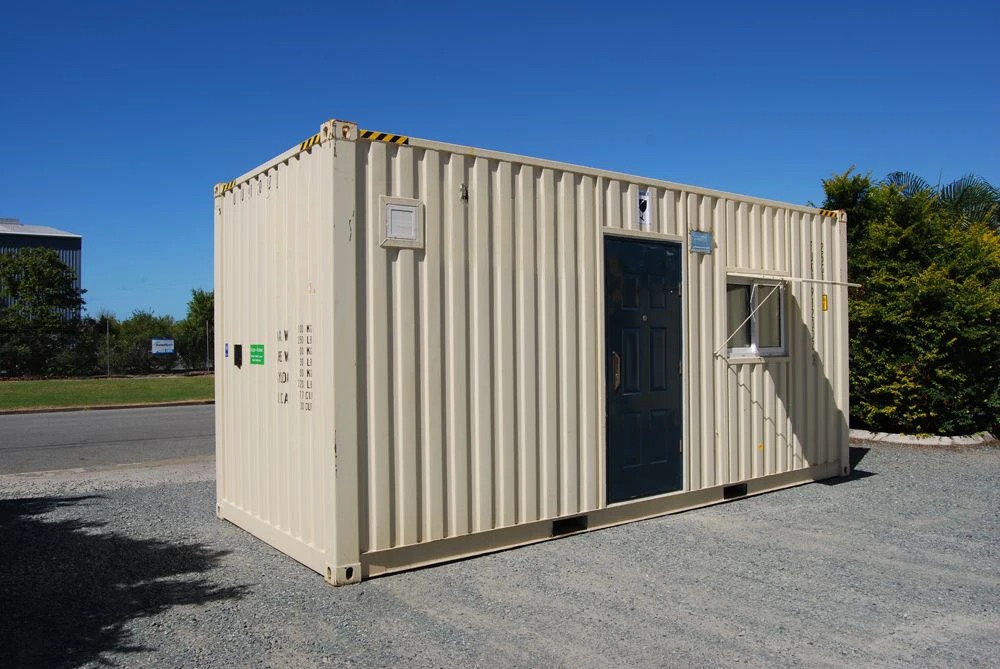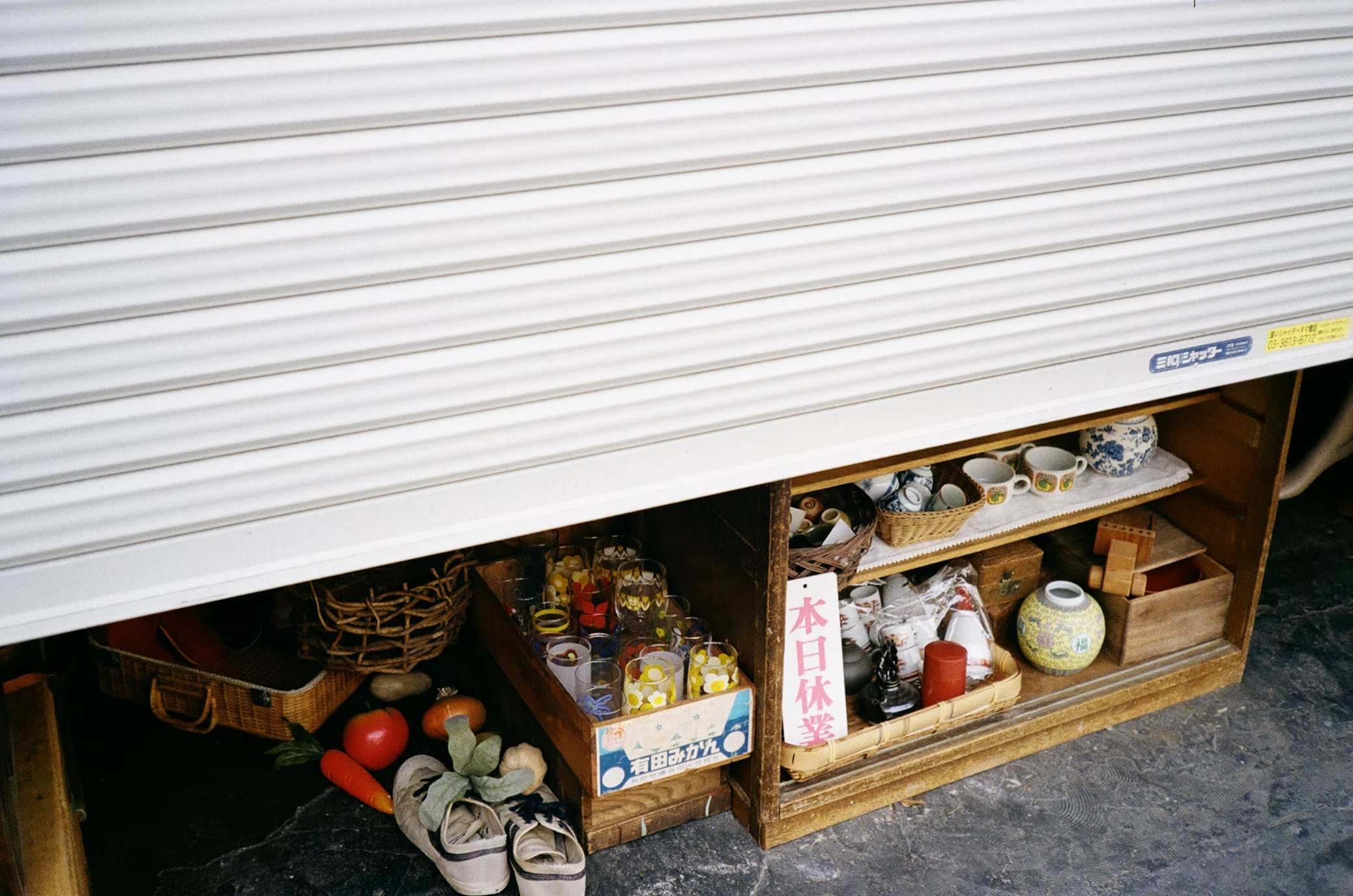With today’s sky-high rents, housing shortages, and the ever-increasing living costs, it’s becoming more common for some to ask, “Can you live in self-storage units?”
Storage units are dry, lockable, and typically much cheaper than even the smallest apartment or room in a city. Meaning? They look like quite a bargain!
However, the many implications of living in self-storage units mean that the “Can you live in self-storage units?” question is impractical.
Why does living in self-storage units doesn’t mean you’ll have the housing option you need in your home search? Read more in this article!
Also Read: Container Home Foundation: Importance, Components, and Types
The Appeal of Living in Container Self-Storage Units

For people facing tough situations like homelessness, sudden job loss, or simply trying to save money, these units might seem like a clever workaround to the housing crisis.
The appeal is easy to understand: you get privacy, a roof over your head, and 24/7 access in many facilities. No need to fear about not having a roof over your head anymore!
If you use social media thoroughly, you can find online stories and discussions that pop up about people using storage containers as makeshift homes.
Some see it as a way to save for a deposit on a real apartment, while others might be in between places and desperate for immediate shelter.
The privacy, security, and low cost can make a storage unit seem like a lifeline. But while the temptation is real, the reality is a lot more complicated and risky than it first appears.
Legal Implications of Living in Container Self-Storage Units

Here’s the bottom line of the whole matter – living in a self-storage unit is illegal anywhere in the US!
Even without the other repercussions, the legal implications are more than enough to make your head spin.
To start, storage units are commercial spaces, not residential dwellings. Be they’re conventional or shipping container-derived, their builders don’t intend them for human habitation.
Zoning Laws and Building Codes
Even when it comes to their functions, laws, and codes, conventional (and container) self-storage units and residential buildings differ in so many ways.
First, residential buildings must meet specific standards for ventilation, fire safety, plumbing, and access to utilities like water and electricity so people can live comfortably inside.
Storage units, on the other hand, lack these features – because we should use them only to store belongings and not somewhere to get some shuteye.
This would mean installing bathrooms, proper ventilation, heating, insulation, and emergency exits, none of which are present in standard storage containers.
Lease Agreements
When you rent a container storage unit from a storage vendor, you sign a contract that explicitly states the unit is for storage only, not for living or sleeping in.
Violating this agreement is grounds for immediate eviction and the loss of your stored items, as storage vendors take this problem seriously to avoid legal trouble themselves.
Insurance and Liability
Most storage facilities have insurance policies that explicitly say people should not live in self-storage units.
Allowing habitation would expose the facility to massive liability risks, from injury to death, and could void their insurance coverage.
Consequences
If you’re caught living in a storage unit, you can expect the storage vendor to evict you right away, lose access to your belongings, and possibly face legal action.
In some cases, local authorities may get involved, especially if they find children or vulnerable adults living in unsafe conditions.
Other Implications

Even if the law wasn’t an issue, there are many serious risks and downsides if you want to live in self-storage units:
Health and Safety Hazards
- No Basic Amenities: Storage units don’t have running water, toilets, showers, or kitchens, and you leave the facility just to use the bathroom or get a drink of water.
- Lack of Ventilation: Most units are sealed tight to protect stored items, making them stuffy and potentially dangerous.
- Temperature Extremes: Because containers use steel construction, they can become dangerously hot in the summer and deathly cold in the winter.
- Fire Risk: Trying to wire up electricity, use space heaters, or light candles in a storage unit is a major fire hazard, and you don’t want to die from such an accident.
- Chemical Exposure: It’s common for storage containers to use chemical treatment to maintain their condition, making them unusable for long-term living at all.
Security and Privacy Concerns
- No Legal Rights as a Tenant: If you’re caught, the storage company can evict you and your belongings without the legal protections tenants have in residential leases.
- Lack of Security: Apart from not having security measures to keep inhabitants safe, self-storage units can’t give you privacy, as people often come to store and retrieve items.
Social and Psychological Impacts
- Isolation: Living in a storage unit can be incredibly isolating, since you’re cut off from neighbors, friends, and support networks.
- Stigma: There’s a real social stigma attached to living in such unconventional and illegal circumstances, which can affect mental health and self-esteem.
- Constant Stress: The fear of being discovered, evicted, or facing legal trouble can lead to chronic stress and anxiety.
Practical Limitations
- No Address: Without a legal address, it’s hard to get mail, apply for jobs, access healthcare, or receive government benefits.
- No Cooking or Cleaning Facilities: Preparing food or keeping clean is nearly impossible, leading to poor nutrition and hygiene.
Facility Risks
- Facility Liability: If someone suffers injury or dies while living in a storage unit, the facility could face lawsuits, fines, or even closure.
- Insurance Voids: Insurance policies for both the renter and the facility can become void if illegal habitation occurs, leaving everyone to suffer from financial losses.
Answer to the Problem

Now that we know how impractical and uncomfortable it is to live in self-storage units, is there any other alternative housing option we can choose?
The solution is actually simple – shipping container homes!
No, these aren’t your regular shipping containers where you can set up a personal mattress on the container’s bed and other amenities like you’re going on a camping trip.
These are converted shipping containers that vendors like Tradecorp designed deliberately to house inhabitants despite having a storage container-based construction.
Far cheaper than conventional homes and have amenities like regular homes, container homes have long been a dear for anyone who can’t afford regular accommodation.
In case you need some examples, some homeless shelters in Los Angeles and Atlanta use shipping container constructions to house the homeless in decent homes.
With convenience not that different from regular homes, many people with housing problems no longer have to depend on living in self-storage units that will only become detrimental to them.
Also Read: Pros of a Shipping Container Shelter Home Over Other Shelters
Conclusion
Instead of choosing to live in self-storage units, living in a container home is what you need to find the cheap yet functional home you’ve always needed. If you want to rent or buy that home, contact Tradecorp today! With different compartments for a bathroom and bedroom, and amenities from water heaters to AC, Tradecorp’s container homes are the solution for homeless shelters or anyone looking for alternative housing options.


